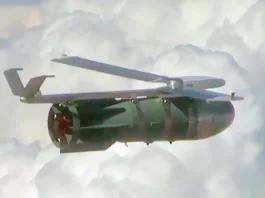The European Peace Facility (EFF), an extra-budgetary fund designated for Ukraine with a value of 12 billion euros, will not be used to finance the acquisition of Turkish TB-2 tactical drones manufactured by Baykar. France, Greece, and Cyprus vetoed European funding for acquiring these aircraft, according to information published on February 17 in the Greek daily I Kathimeriní.
The permanent delegates of Greece and Cyprus to the European Union obtained information that a major order from Turkey, which would be financed with money from the European Union, was being prepared to address Ukraine’s urgent needs. This information was obtained from a diplomatic source in Brussels. According to the Greek newspaper, the permanent representatives of Greece, Cyprus, and France reacted swiftly to block the proceedings as soon as it was effectively proven that this was the case.
The information was validated by the Cypriot edition of I Kathimeriní. It was emphasised that this is not the first time that the three nations have united in opposition to similar initiatives. A competent source explained that Greece, as a matter of principle, supports autonomous European defence and a policy that should prioritise the development of the European defence industry. Furthermore, they stated they do not want the Turkish defence industry to be supported with tax dollars.
In the meantime, Baykar initiated the construction of a factory in Ukraine last week that can manufacture up to 120 drones annually. It is expected to be opened in 2025.
Despite their initial efficacy in the early months of the conflict in Ukraine, Ukrainian TB-2 drones have since become less effective.
70% of drones involved in the Ukrainian conflict are neutralised electronically; this explains why Turkish drones, which were regarded as the most formidable two years ago, are now used less frequently because they are more susceptible to jamming and detection, explained the Army Chief of Staff General Pierre Schill during a Senate hearing in November 2023.






